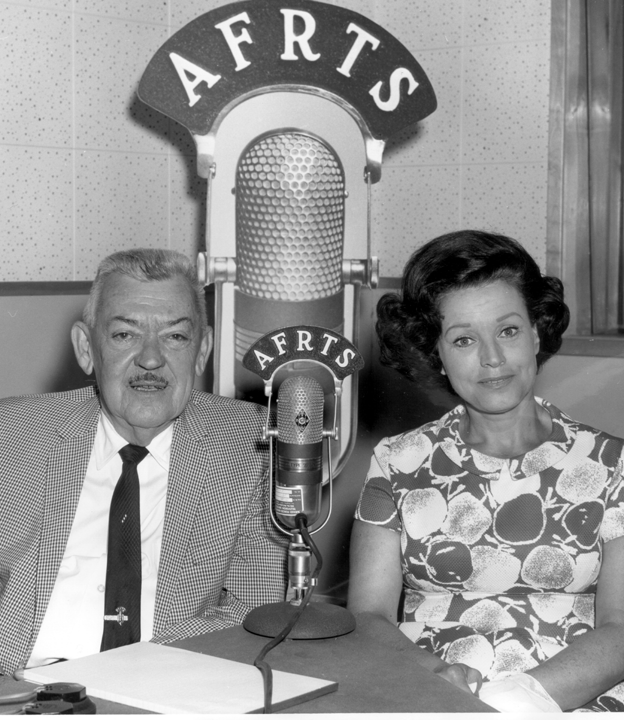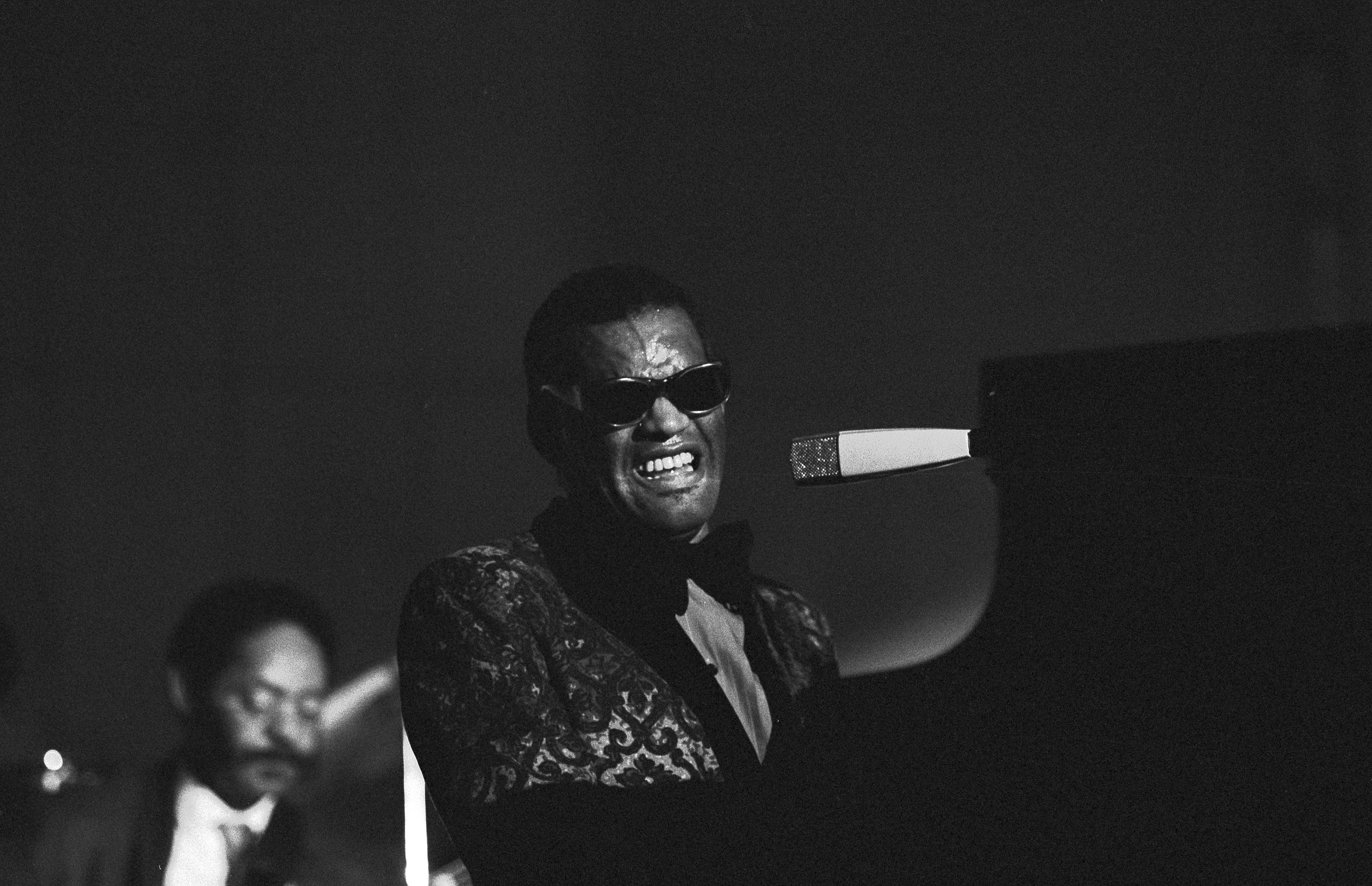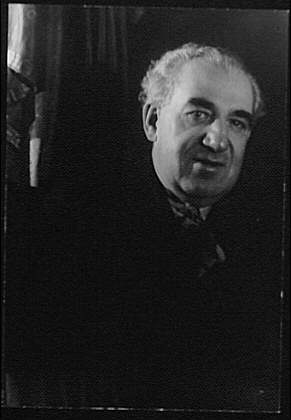|
How About This
''How About This'' is an album by vocalist Kay Starr and pianist and bandleader Count Basie, released in 1969 by the Paramount Records label.Edwards, D. & Callahan, MParamount Album Discography accessed November 15, 2015 Background In the 1960s, Basie had previously recorded for Roulette Records, Reprise, and Verve, before recording single albums for a number of labels, including Paramount. In December 1968, he recorded ''How About This'' with Starr; Dick Hyman was responsible for the arrangements. Starr's vocal performance was likened to that of Dinah Washington. Reception AllMusic awarded the album 4½ stars.Allmusic listing accessed November 14, 2015 Track listing # "I Get the Blues When It Rains" (Marcy Klauber, Harry Stoddard) – 3:04 # "[...More Info...] [...Related Items...] OR: [Wikipedia] [Google] [Baidu] |
Kay Starr
Katherine Laverne Starks (July 21, 1922 – November 3, 2016), known professionally as Kay Starr, was an American singer who enjoyed considerable success in the late 1940s and 1950s. She was of Iroquois and Irish heritage. Starr performed multiple genres, such as pop, jazz, and country, but her roots were in jazz. Life and career Kay Starr was born Katherine Laverne Starks on a Indian reservation, reservation in Dougherty, Oklahoma. Her father, Harry, was an Iroquois Native Americans in the United States, native American; her mother, Annie, was of mixed Irish and Native American heritage. When her father got a job installing water sprinkler systems for the Automatic Sprinkler Company, the family moved to Dallas. Her mother raised chickens, whom Starr serenaded in the coop. Her aunt Nora was impressed by her 7-year-old niece's singing and arranged for her to sing on a Dallas radio station, KTCK (AM)#WRR, WRR. Starr finished 3rd one week in a talent contest, and placed first every ... [...More Info...] [...Related Items...] OR: [Wikipedia] [Google] [Baidu] |
Buddy DeSylva
George Gard "Buddy" DeSylva (January 27, 1895 – July 11, 1950) was an American songwriter, film producer and record executive. He wrote or co-wrote many popular songs and, along with Johnny Mercer and Glenn Wallichs, he co-founded Capitol Records. Biography DeSylva was born in New York City, but grew up in California, and attended the University of Southern California, where he joined the Theta Xi Fraternity. His Portuguese-born father, Aloysius J. De Sylva, was better known to American audiences as actor Hal De Forrest. His father was also a lawyer as well as an actor. His mother, Georgetta Miles Gard, was the daughter of Los Angeles police chief George E. Gard. DeSylva's first successful songs were those used by Al Jolson on Broadway in the 1918 production of ''Sinbad'', which included "I'll Say She Does". Soon thereafter, he met Jolson and in 1918 the pair went to New York and DeSylva began working as a songwriter in Tin Pan Alley. In the early 1920s, DeSylva frequent ... [...More Info...] [...Related Items...] OR: [Wikipedia] [Google] [Baidu] |
A Cottage For Sale
"A Cottage for Sale" is a popular song. The music was composed by Willard Robison, and the lyrics were written by Larry Conley. The song was first published in 1929, and over 100 performers have recorded versions of "A Cottage for Sale." The first versions of the song were released by The Revelers in January 1930 and Bernie Cummins with the New Yorker Orchestra in March 1930. Lyrics and Themes The song uses an empty cottage as a metaphor of a failed relationship or the end of a long relationship perhaps in death. :Our little dream castle :With every dream gone :Is lonely and silent :The shades are all drawn :And my heart is heavy :As I gaze upon :A cottage for sale :The lawn we were proud of :Is waving in hay :Our beautiful garden has :Withered away. :Where we planted roses :The weeds seem to say... :A cottage for sale :Through every window :I see your face :But when I reach (the) window :There's (only) empty space :The key's in the mailbox :The same as before :But no one i ... [...More Info...] [...Related Items...] OR: [Wikipedia] [Google] [Baidu] |
Don Gibson
Donald Eugene Gibson (April 3, 1928 – November 17, 2003) was an American songwriter and country musician. A Country Music Hall of Fame inductee, Gibson wrote such country standards as " Sweet Dreams" and "I Can't Stop Loving You", and enjoyed a string of country hits ("Oh Lonesome Me") from 1957 into the mid-1970s. Gibson was nicknamed "The Sad Poet" because he frequently wrote songs that told of loneliness and lost love. Early days Don Gibson was born in Shelby, North Carolina, United States, into a poor working-class family. He dropped out of school in the second grade. Career His first band was called Sons of the Soil, with whom he made his first recording for Mercury Records in 1949. In 1957, he journeyed to Nashville to work with producer Chet Atkins and record his self-penned songs "Oh Lonesome Me" and "I Can't Stop Loving You" for RCA Victor. The afternoon session resulted in a double-sided hit on both the country and pop charts. "Oh Lonesome Me" set the pattern ... [...More Info...] [...Related Items...] OR: [Wikipedia] [Google] [Baidu] |
I Can't Stop Loving You
"I Can't Stop Loving You" is a popular song written and composed by country singer, songwriter, and musician Don Gibson, who first recorded it on December 3, 1957, for RCA Victor Records. It was released in 1958 as the B-side of " Oh, Lonesome Me", becoming a double-sided country hit single. At the time of Gibson's death in 2003, the song had been recorded by more than 700 artists, most notably by Ray Charles, whose recording reached No. 1 on the Billboard chart. Composition Gibson wrote both "I Can't Stop Loving You" and "Oh, Lonesome Me" on June 7, 1957, in Knoxville, Tennessee. "I sat down to write a lost love ballad," Gibson said in Dorothy Horstman's 1975 book ''Sing Your Heart Out, Country Boy.'' "After writing several lines to the song, I looked back and saw the line 'I can't stop loving you.' I said, 'That would be a good title,' so I went ahead and rewrote it in its present form." Charts ''Note'': This original recording was released as "I Can't Stop Lovin' You". Ray ... [...More Info...] [...Related Items...] OR: [Wikipedia] [Google] [Baidu] |
Ray Charles
Ray Charles Robinson Sr. (September 23, 1930 – June 10, 2004) was an American singer, songwriter, and pianist. He is regarded as one of the most iconic and influential singers in history, and was often referred to by contemporaries as "The Genius". Among friends and fellow musicians he preferred being called "Brother Ray". Charles was blinded during childhood, possibly due to glaucoma. Charles pioneered the soul music genre during the 1950s by combining blues, jazz, rhythm and blues, and gospel styles into the music he recorded for Atlantic Records. He contributed to the integration of country music, rhythm and blues, and pop music during the 1960s with his crossover success on ABC Records, notably with his two ''Modern Sounds'' albums. While he was with ABC, Charles became one of the first black musicians to be granted artistic control by a mainstream record company. Charles's 1960 hit "Georgia On My Mind" was the first of his three career No. 1 hits on the ''Billboard'' ... [...More Info...] [...Related Items...] OR: [Wikipedia] [Google] [Baidu] |
Hallelujah I Love Her So
"Hallelujah I Love Her So" is a single by American musician Ray Charles. The rhythm and blues song was written and released by Charles in 1956 on the Atlantic label, and in 1957 it was included on his self-titled debut LP, also released on Atlantic. The song peaked at number five on the ''Billboard'' R&B chart. It is loosely based on 'Get It Over Baby' by Ike Turner (1953). The song incorporates Gospel music. "Hallelujah I Love Her So" is a testament to the joyous release of love, featuring a sophisticated horn arrangement and memorable tenor sax solo by Don Wilkerson. Several artists, including Stevie Wonder, Peggy Lee, Eddie Cochran, and Humble Pie have covered the song. Personnel *Ray Charles – lead vocal * Don Wilkerson – tenor saxophone solo *The Ray Charles Orchestra – instrumentation * Jerry Wexler – producer Beatles cover versions According to biographer Mark Lewisohn (in ''The Complete Beatles Chronicle'', p. 362), the Beatles (first as the Quarrymen) ... [...More Info...] [...Related Items...] OR: [Wikipedia] [Google] [Baidu] |
Maurice Yvain
Maurice Yvain (12 February 1891 – 27 July 1965) was a French composer noted for his operettas of the 1920s and 1930s. Some of which were written for Mistinguett, at one time the best-paid female entertainer in the world. In the 1930s and 1940s, he became a major success in the United States and several of his pieces appeared in the famous ''Ziegfeld Follies'' on Broadway. He also composed music for several films of notable directors such as Anatole Litvak, Julien Duvivier, and Henri-Georges Clouzot. Yvain's music blended with the then "spirit of Paris". Biography Maurice Yvain was born in 1891 into a musical family in Paris. He was educated by his father, who played the trumpet in the Orchestre de l'Opéra-Comique. From 1903, he studied at the Conservatoire de Paris where he was a pupil of Louis Diemer and Xavier Leroux. An excellent pianist, he first played as an accompanying pianist at the Casino d'Évian. [...More Info...] [...Related Items...] OR: [Wikipedia] [Google] [Baidu] |
Albert Willemetz
Albert Willemetz (14 February 1887 – 7 October 1964) was a French libretto, librettist. Career Albert Willemetz was a prolific lyricist. He invented a new type of musical, with a humorous and "sexy" style. He was the author of more than 3000 songs, including "Mon homme" (popularized in English as "My Man"), "Valentine (Maurice Chevalier song), Valentine," "Dans la vie faut pas s'en faire," "Les palétuviers," "Ramona," "Est-ce que je te demande," "Ah si vous connaissiez ma poule," "Amusez-vous," and "Félicie aussi"), more than 100 musicals (including ''Phi-Phi'', ''Ta Bouche'', ''Là-Haut'', ''Dédé (opérette), Dédé'', ''3 jeunes filles nues'', ''Florestan 1er'', and ''Trois Valses''), more than 100 revues (including seven with Sacha Guitry), and work for films. He worked with some of the notable musicians of his day, including André Messager, Maurice Yvain, Arthur Honegger, Henri Christiné, José Padilla Sánchez, José Padilla, Vincent Scotto, Reynaldo Hahn, Raoul Mo ... [...More Info...] [...Related Items...] OR: [Wikipedia] [Google] [Baidu] |
Channing Pollock (writer)
Channing Pollock (March 4, 1880 – August 17, 1946) was an American playwright, critic and screenwriter, whose works included '' The Evil Thereof'' (1916) and the memoir ''The Footlights, Fore and Aft'' (1911). Pollock is perhaps best remembered in connection with a review of one of his later plays, in which Dorothy Parker famously wrote "'The House Beautiful' is the play lousy." Pollock began his career in 1896 as the dramatic critic at ''The Washington Post'', and later worked at the ''Washington Times''. Biography His father, Alexander L. Pollock, was consul of the United States of America in San Salvador, El Salvador. His mother took Channing and his two siblings to join him on April 1894. They took the Pacific Mail Steamship Company liner SS ''San Blas'' from San Francisco and arrived at the port of Acajutla on April 7. The country was at peace when they arrived; however, by the end of the month, the Revolution of the 44 occurred, during which President Carlos Ezeta was o ... [...More Info...] [...Related Items...] OR: [Wikipedia] [Google] [Baidu] |
Mon Homme
"Mon Homme" (),also known by its English translation, "My Man", is a popular song first published in 1920. The song was originally composed by Maurice Yvain with French lyrics by Jacques-Charles (Jacques Mardochée Charles) and Albert Willemetz. The English lyrics were written by Channing Pollock. History ''Mon Homme'' was copyrighted in France by Maurice Yvain, Albert Willemetz and Jacques-Charles (Jacques Mardochée Charles) in 1920 and was introduced to Parisian audiences in the revue "''Paris qui Jazz''" at the Casino de Paris. The song was performed by revue star Mistinguett and her stage partner American dancer Harry Pilcer. Although the song originated in France –where it was a hit for Mistinguett– it was popularized in the English speaking world in the 1920s with the 1921 recording by Ziegfeld Follies singer Fanny Brice. The song was a hit, and the record eventually earned a Grammy Hall of Fame Award for Brice in 1999. Brice also sang the song during one of the s ... [...More Info...] [...Related Items...] OR: [Wikipedia] [Google] [Baidu] |
Henry Creamer
Henry Sterling Creamer (June 21, 1879 – October 14, 1930) was an African American popular song lyricist and theater producer. He was born in Richmond, Virginia and died in New York. He co-wrote many popular songs in the years from 1900 to 1929, often collaborating with Turner Layton, with whom he also appeared in vaudeville. Career Henry Creamer was a singer, dancer, songwriter and stage producer/director. He first performed on the vaudeville circuit in the U.S. and in Europe as a duo with pianist Turner Layton, with whom he also co-wrote songs. Two of their most enduring songs, for which Creamer wrote the lyrics, are " After You've Gone" (1918), which was popularized by Sophie Tucker, and " Way Down Yonder in New Orleans" (1922), which was included in the soundtrack for one of the dance numbers in the Fred Astaire / Ginger Rogers 1939 movie ''The Story of Vernon and Irene Castle''. Way Down Yonder in New Orleans became a hit again in 1959 when the rocked up recording by Freddy C ... [...More Info...] [...Related Items...] OR: [Wikipedia] [Google] [Baidu] |



